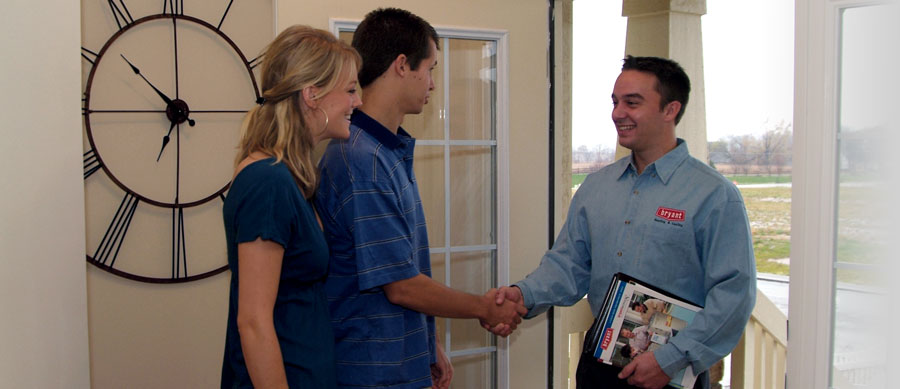
There are three main types of whole house humidifiers; steam, bypass and fan-powered. Through extensive experience and factory training, the professionals from JNJ Heating & Air Conditioning offer informed and practical recommendations for the best choice to meet your specific needs.
Steam humidifiers introduce moisture into the air by heating water electrically until it boils, producing humidity in the form of steam. Steam is carried by the system blower and spread throughout hour home via vents, working even if your furnace isn’t on. Steam humidifiers are the quickest and most natural means of optimizing and maintaining comfortable humidity levels.
Bypass humidifiers supplement moisture to the warm air produced by a furnace. Warm air is first drawn from the heating ducts, and then, as it flows through a water panel, moisture is absorbed. This moisture is introduced back into the air stream, and then into your home. Bypass humidifiers are easily installed in a forced air handling system on the supply or return plenum (air distribution box connected to the ductwork).
Fan-powered humidifiers are very much like a bypass humidifier, but with the addition of a fan to blow air across the internal pad (water panel). Power humidifiers are superior in that each day, they average a gallon more of humidity than the bypass unit. The electricity drawn by the internal fan is minimal, and adds up to the cost of a 25-watt light bulb. Fan-powered flow-through systems don’t require a bypass duct, making them ideal for installation in tight spaces.
JNJ Heating & Air Conditioning, through our partnership with Bryant, offers the most effective and economical solutions for home humidification. By adding needed moisture to the air, Bryant humidifiers answer the challenge of dry, furnace-heated air, providing a cleaner, healthier home. They feature low-noise operation, front-facing easy-access door, large or small capacity, and the most sophisticated technology available.
During the winter months, humidity in an average home will drop to 10% or less. According to the Mayo Clinic, optimum humidity level is between 30% and 50%. Because properly humidified air slows the body’s natural cooling mechanism, you’ll feel warmer at lower temperatures, and be less likely to turn up the thermostat. Through the use of a humidifier, you’ll save on energy costs without sacrificing comfort.
While you may ignore the shocks you get from the carpet in winter, static electricity is a warning sign of low humidity levels. It may not seem like a big deal, but a number of viruses thrive in overly dry air. Sore throat, bloody noses, itchy eyes, headaches, chapped lips, aggravated symptoms of eczema, psoriasis and thyroid disorders have all been directly linked to insufficient moisture in the air. Humidifiers also protect wood furnishings from drying and cracking, as well as keeping your skin hydrated and supple. The solution is straight forward, easy and cost-effective. When you contact JNJ Heating & Air Conditioning, we have the knowledge, training and equipment to answer all of your home comfort concerns and expectations.





